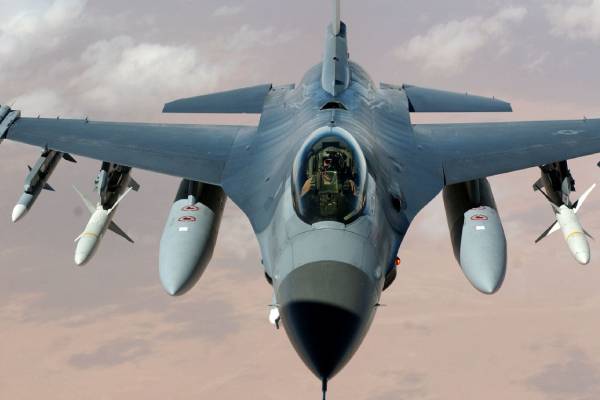The Radar of a Greek S-300 missile system based on the island of Crete locked on Turkish fighter jets according to State Media in Turkey.
Greek surface-to-air missiles locked on to Turkish F-16 fighter jets carrying out a reconnaissance mission in international airspace, according to Turkey’s state-run Anadolu Agency.
The allegation is the latest claim from Turkey that its neighbour and fellow NATO member Greece has been targeting its aircraft above the Eastern Mediterranean and the Aegean Sea.
The radar of a Greek S-300 missile system based on the island of Crete locked on to the Turkish jets on Tuesday, Anadolu reported on Sunday, citing defence ministry sources.
The F-16s were at an altitude of 3,000 metres (10,000 feet) to the west of Greece’s Rhodes island when the Russian-made S-300’s target-tracking radar locked on, the report added. The Turkish planes completed their mission and returned to their bases “despite the hostile environment”.
Radar lock-ons are considered an act of hostility under NATO rules of engagement.
Greek defence ministry sources dismissed the allegations. “Greece’s S-300 missile system has never put a lock on Turkish F-16 jets,” the sources said, according to state-run Ert television.
Last week, Turkey summoned the Greek military attache and filed a complaint with NATO after Greek F-16s allegedly harassed Turkish F-16s conducting a mission for the alliance.
Anadolu reported the Greek pilots put Turkey’s aircraft under a radar lock over the Eastern Mediterranean. Turkey “gave the necessary response” and forced the planes to leave the area, Anadolu said, without elaborating.
Greece rejected the Turkish version of events. Its defence ministry said five Turkish jets appeared without prior notification to accompany a flight of US B-52 bombers – which had not been due to have a fighter escort – through an area subject to Greek flight control.
It said four Greek fighters were scrambled and chased off the Turkish planes, adding Athens informed NATO and US authorities of the incident.
Although both are NATO members, Turkey and Greece have decades-old disputes over an array of issues, including territorial claims in the Aegean Sea and disagreements over the airspace there. The disputes have brought them to the brink of war three times in the past half-century.
Tensions flared in 2020 over exploratory drilling rights in areas of the Mediterranean Sea, where Greece and Cyprus claim exclusive economic zones, leading to a naval standoff.
Turkey has accused Greece of violating international agreements by militarising islands in the Aegean Sea. Athens says it needs to defend the islands – many of which lie close to Turkey’s coast – against a potential attack from Turkey’s large fleet of military landing craft.
Turkey says Greece is stationing troops on islands in the Aegean Sea in violation of peace treaties signed after World Wars I and II.
Turkish President Recep Tayyip Erdogan cut off dialogue with Greece after alleging Greek Prime Minister Kyriakos Mitsotakis lobbied against US arms sales to his country.





